Center
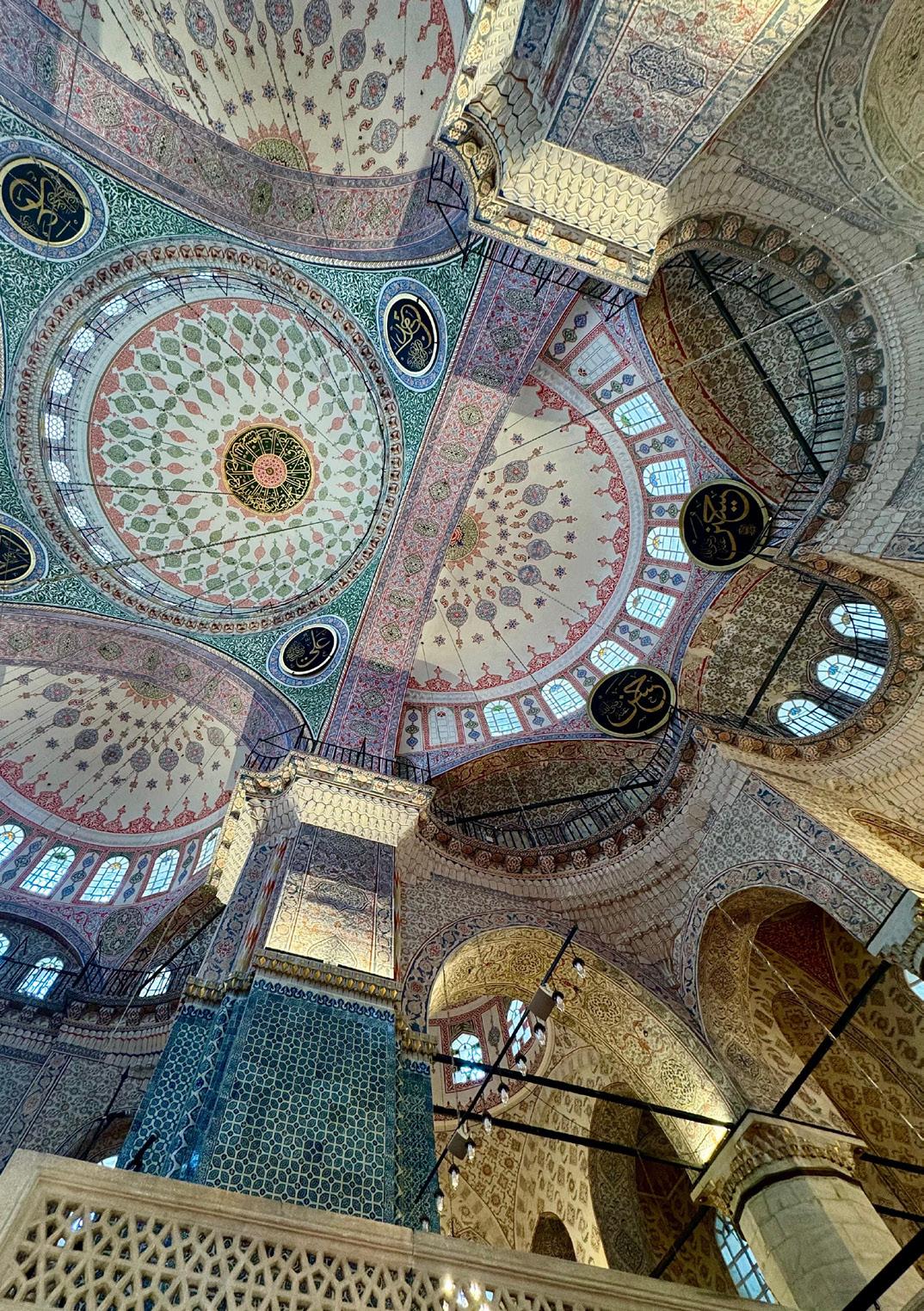






Center






Table 0f Contents
Letter from the Director
Center Events
Center Funding Awards
Sharmin and Bijan Mossavar-Rahmani
Center Dissertation Completion Award
Research Reports
Sharmin and Bijan Mossavar-Rahmani
Center Dissertation Completion Fellow
Postdoctoral Research Associates
Associate Research Scholars
Visiting Fellow
Looking Ahead
Incoming Fellows
People
Administration
Center Research Associates
Visiting Fellow
Executive Committee
Affiliated Faculty
Advisory Council Members


The Sharmin and Bijan Mossavar-Rahmani Center is now well established and at the forefront of cultural, historical, and policy research about Iran and the Persian Gulf in the United States and around the world, thanks to the leadership of Prof. Ghamari-Tabrizi, our director over the past six years. During academic year 2024-2025, we have continued to provide opportunities for rigorous and innovative scholarly work in Iran and Persian Gulf Studies; to sponsor performances by some of the best living Iranian musicians; and to foster multiple opportunities for conversations and education about all aspects of political, artistic, and social life in modern Iran and the Persian Gulf. I was so honored to have the opportunity to serve as Interim Director of the Center this academic year, while Director Behrooz Ghamari-Tabrizi was on leave, and am pleased to report on some of our activities.
A cornerstone of our work at the Center is our postdoctoral fellowship program, in which leading young scholars develop book manuscripts in an atmosphere of stimulating and sustained conversation. We were lucky to host eight brilliant postdocs this year whose work on a broad range of topics, including how foreign policy experts shape U.S. security policies toward Iran and the Middle East; how primary opinions of the Iranian Guardian Council are formulated and conveyed; on the history and importance of popular theatre in Tehran; and on history of nonhuman creatures in Islamic cosmology and the relation between positivism and Islam in Iran. Our postdocs take a leading role in hosting visiting lecturers by leading scholars of Iranian studies from around the world, building in the process relationships and mentorship across generations of scholars on Iran and the region. Through their teaching and guest lectures in classrooms across campus, the postdocs also foster learning about the region on campus among students and faculty alike.
The Center ushered in the new academic year with Allen Fromherz’ book talk in September 2024, on “The Center of the World.” This talk was followed by 11 additional Wednesday seminars, the topics of which are listed in this report. This year the Center also hosted three extraordinary musical performances (two in the fall and one in March, in coordination with Nowruz celebrations on campus). The first of these performances was “A Portrait Concert Celebrating Reza Vali,” performed by artists of Decoda, the affiliate ensemble of Carnegie Hall. Reza Vali, an Iranian composer and faculty at the School of Music at Carnegie Mellon, has received numerous honors and commissions and his orchestral compositions have been performed internationally. In November, Ali Akbar Moradi and Pejman Hadadi, two of Iran’s most renowned musicians, played the Tanbur and Percussion for a packed audience during its “Euphoric Whispers” concert. Then on March 12th, the Center hosted a joyous and festive performance by the Iranian Folk Band, Rastak Music Group, in a filled Richardson Auditorium, which had guests dancing in the aisles.
As always, please visit the Center’s website or YouTube channel for recordings of most of its events.


This spring, like every year, sees a transition in the composition of our postdoctoral fellows’ cohort. Dr. Beeta Baghoolizadeh, Dr. Marzieh Tofighi-Darian, and Dr. Sheragim Jenabzadeh will be moving on to their next opportunities. Their contributions to the work of the Center and our broader community have been outstanding, and they will be greatly missed. At the same time, we are excited to be welcoming three new members of our postdoctoral fellow’s community: Erik Blackthorne-O’Barr (Columbia University), Saghar Bozorgi (University of Texas at Austin), and Aidin Torkameh (York University). You can read their biographies, and about the work of our current and departing fellows, beginning on page 11.
This past year we began an important new program to award an MRC Dissertation Completion Fellowship to outstanding young scholars of Iran and the Persian Gulf. This is especially important at Princeton, where doctoral students do not necessarily have funding beyond five years, which is not enough time to complete a Ph.D. of merit. Our inaugural fellow, Jamie O’Connell, of the Department of Near Eastern Studies, completed her 7th year at the end of 2025. Please see a report about her dissertation research on page 11.
We also hosted one visiting scholar this past year, Dr. Sara Tafakori, who reflects on her time spent with us on page 18. Beginning next year, a Visiting Fellowship Application will be housed on our website for scholars on sabbatical who are interested in furthering their research at the Center for a short term.
From all of us at the Sharmin and Bijan Mossavar-Rahmani Center, we wish you a relaxing and peaceful summer. Please stay in touch with us and think about getting some of our fall events on your calendars starting now! Our fall schedule is listed on the back of this report.
Sincerely,

Julia Elyachar
Interim Director, Sharmin and Bijan Mossavar-Rahmani Center for Iran and Persian Gulf Studies
Associate Professor, Department of Anthropology
Princeton Institute for International and Regional Studies (PIIRS)
Director of Graduate Studies, PIIRS
Associated Faculty, Department of Near Eastern Studies
Research Faculty, Dignity and Debt
Co-Editor, Cultural Anthropology

The Sharmin and Bijan Mossavar-Rahmani Center events fall under five series: The Mossavar-Rahmani Center Seminar Series, which addresses issues related to Iran and the Persian Gulf in the 19th–21st centuries and focuses on the region’s role and significance in the contemporary world; the Book Launch Series, which introduces emerging scholars and artists through interdisciplinary discussions following the release of a new book; Conferences & Workshops, which provide an in-depth focus on particular themes or projects hosted by the Center; *Co-sponsored Events are those in which the Center collaborates with other academic units; and finally our Film, Literature, and the Arts Series, which explores cultural issues through artistic mediums. *Organizing department is listed in parentheses
September 11, 2024
Allen James Fromherz, Director of the Middle East Studies Center & Professor of Middle East, Gulf, and Mediterranean History, Georgia State University
“The Center of the World: A Global History of the Persian Gulf from the Stone Age to the Present” Book Launch Series
September 18, 2024
Hosna Sheikholeslami, Assistant Professor of Anthropology and Sociology, Denison University
“The (Mis)believing Polis: Censorship, Translation Infrastructures, and the Politics of Publishing Western Human Sciences in Iran”
Mossavar-Rahmani Seminar Series
September 25, 2024
Andrea Wright, Class of 1952 Distinguished Associate Professor of Anthropology and Asian and Middle Eastern Studies, The College of William and Mary “Depoliticizing Labor: Oil and Citizenship in the Persian Gulf”
Mossavar-Rahmani Seminar Series
October 2, 2024
Michelle Assay Eshghpour, Marie Curie/UKRI Global Fellow, University of Toronto and King’s College London
“When Puppets Sing in Tehran: Reconfiguring Iran’s ‘National’ Opera”
Mossavar-Rahmani Seminar Series
October 9, 2024
Q-mars Haeri, Postdoctoral Research Associate, Sharmin and Bijan MossavarRahmani Center for Iran and Persian Gulf Studies
“The Unbearable Lightness of “The Lowbrow”: Historical Narratives of Modern Theatre in Iran”
Mossavar-Rahmani Seminar Series
October 23, 2024
Sareh Z Afshar, Associate Research Scholar, Sharmin and Bijan Mossavar-Rahmani Center for Iran and Persian Gulf Studies
“Ambiguity in the Archive: Performances of Death and the Iranian War Generation”
Mossavar-Rahmani Seminar Series
November 6, 2024
Mehrdad Alipour, Postdoctoral Research Fellow, University of Utrecht
“Unveiling Discursive Spaces: Modern Shiʿi Legal Debates on Homosexuality in Islam”
Book Launch Series
November 13, 2024
Zep Kalb, Postdoctoral Research Associate, Sharmin and Bijan Mossavar-Rahmani Center for Iran and Persian Gulf Studies
“The Persistence of Economic Development Under Sanctions in Iran”
Mossavar-Rahmani Seminar Series
November 20, 2024
Farshid Emami, Assistant Professor of Art History, Rice University
“Urban Experience in Early Modern Iran: A Daylong Journey in Safavid Isfahan”
Book Launch Series


December 4, 2024
Alexander Jabbari, Assistant Professor of Asian and Middle Eastern Studies, University of Minnesota, Twin Cities “The Making of Persianate Modernity: Language and Literary History between Iran and India”
Book Launch Series
January 29, 2025
Sara Tafakori, Visiting Fellow, Sharmin and Bijan Mossavar-Rahmani Center for Iran and Persian Gulf Studies & Lecturer in Media and Communication, University of Leeds “Imagining Feminist and Popular Subjects through the Woman, Life, Freedom Movement”
Mossavar-Rahmani Seminar Series
February 5, 2025
Kamran Talattof, Chair, Roshan GIDP in Persian and Iranian Studies & Professor of Persian and Iranian Studies, University of Arizona “Love and Religion in Nezami’s Works: Searching for Dantean Similarities”
Mossavar-Rahmani Seminar Series

Film Screening and Discussion with Co-Director and Co-Producer, Persis Karim

WEDNESDAY, FEBRUARY 12, 2025 11 AM - 12:30 PM ROCKY/MATHEY THEATER, ROCKEFELLER COLLEGE
February 12, 2025
Persis Karim, Neda Nobari Chair, Iranian Diaspora Studies & Professor, Comparative and World Literature, San Francisco State University
“‘The Dawn is Too Far: Stories of IranianAmerican Life’: A film screening and discussion about Iranian life stories in the San Francisco Bay Area”
Mossavar-Rahmani Seminar Series
February 19, 2025
Annie Pfeifer, Assistant Professor, Germanic Languages, Columbia University “Ferdowsi in the Third Reich”
Mossavar-Rahmani Seminar Series
February 26, 2025
Naika Foroutan, Director, Berlin Institute for Integration and Migration Research; Director, German Center for Integration and Migration Research; Professor, Cultural, Social and Educational Sciences, Humboldt University “Middle Eastern Futurism: Bold Ambitions, Local Activism, and Post-Migrant Alliances
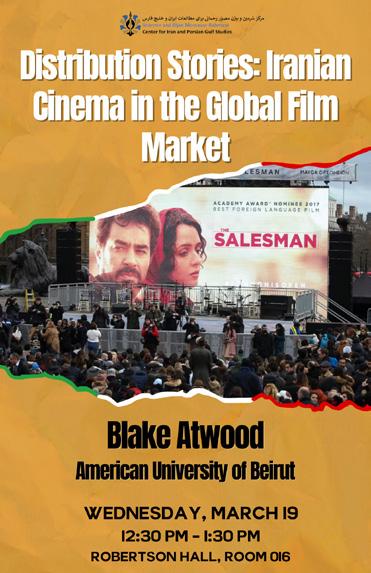

Uniting for a Pan-Progressive Era?”
Mossavar-Rahmani Seminar Series
March 19, 2024
Blake Atwood, Chair, Department of Sociology, Anthropology, and Media Studies & Associate Professor, Media Studies, American University of Beirut
“Distribution Stories: Iranian Cinema in the Global Film Market”
Mossavar-Rahmani Seminar Series
March 26, 2025
Houri Berberian, Director, Center for Armenian Studies; Meghrouni Family Presidential Chair in Armenian Studies; Professor, History, University of California, Irvine
Talinn Grigor, Professor, Art and Architectural History, Modern and Contemporary Global Architecture and Art, Critical, Race, Feminist, and (post)Colonial Theory, University of California, Davis
“The Armenian Woman, Minoritarian Agency, and the Making of Iranian Modernity, 1860–1979”
Book Launch Series
April 2, 2025
Afshin Marashi, Farzaneh Family Chair, Iranian Studies & Professor, International & Area Studies, The University of Oklahoma
“Persianate Messiah: Meher Baba Between
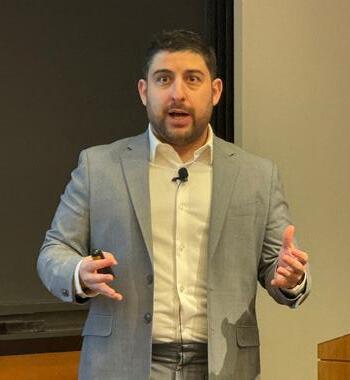
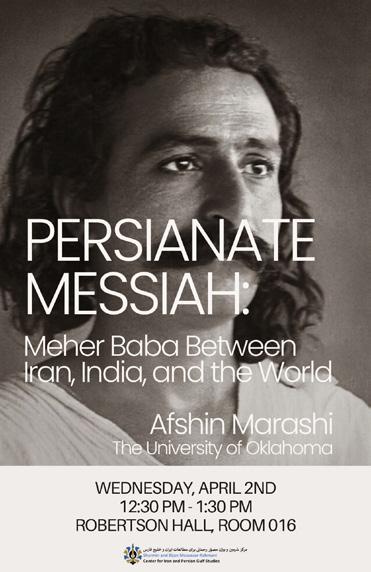
Iran, India, and the World”
Mossavar-Rahmani Seminar Series
April 9, 2025
Adam Hanieh, Joint Chair, Middle East Studies, Institute of International and Area Studies, Tsinghua University & Professor, Political Economy and Global Development, IAIS, University of Exeter
“Greening the Gulf? Renewables, Fossil Capitalism, and the ‘East-East’ Axis of World Energy”
Mossavar-Rahmani Seminar Series
April 16, 2025
Daniel Tavana, Assistant Professor, Political Science, Penn State
“Public Opinion and Ideology in the Islamic Republic of Iran”
Mossavar-Rahmani Seminar Series


CO-SPONSORED EVENTS
(Organizing department is in parentheses)
February 12, 2025
“Kayhan Kalhor, Kamancheh ‘Finding Home in the Music of Iran’”
Moderated by Deborah Amos, Ferris Professor of Journalism in Residence, Princeton University
Richardson Auditorium (Princeton University Concerts)
February 13, 2025
“Live Music Meditation: Kayhan Kalhor, Kamancheh with meditation instruction by Matthew Weiner, Associate Dean in Office of Religious Life”
Richardson Auditorium (Princeton University Concerts)
February 13, 2025
“DoosTrio: Kayhan Kalhor (Kamancheh), Wu Man (Pipa), Sandeep Das (Tabla)”
Richardson Auditorium (Princeton University Concerts)
April 1, 2025
Screening of “La Sirène (The Siren)” and Q&A Director, Sepideh Farsi
Moderator, Sareh Z Afshar (Princeton Film Festival Society)
April 9, 2025
“Siren Song: Understanding Pakistan Through Its Women Singers”: NEH Documentary, Book Discussion, and Live Performance
Fawzia Afzal-Khan, Author and Producer & Visiting Faculty, Gender and Sexuality Studies, Princeton University
Raza Rumi, Moderator & Journalist and Human Rights Professor (Gender and Sexuality Studies Department)
CENTER SPECIAL EVENTS
September 19, 2024
Fall Welcome Reception
Live music by Shiraz Ensemble Maeder Courtyard
September 24, 2024
“A Portrait Concert Celebrating Reza Vali” Composition by Reza Vali
Performed by artists of Decoda, The Affiliate Ensemble of Carnegie Hall featuring Catherine Gregory (flute), Sæunn Thorsteinsdóttir (cello), David Kaplan (piano)
Chancellor Green
November 25, 2024
“Euphoric Whispers”: Improvisations for Tanbur and Percussion
Performances by Ali Akbar Moradi (tanbur and vocal) and Pejman Hadadi (tombak and percussion)
Frist Campus Center, Theater 301
February 4, 2025
Film Screening and Discussion of “Alborz: We Climb Mountains”
Maryam Sepehri, Film Director
March 12, 2025
“Tales of Earth and Sun”: A Performance by Rastak Music Group
Richardson Auditorium
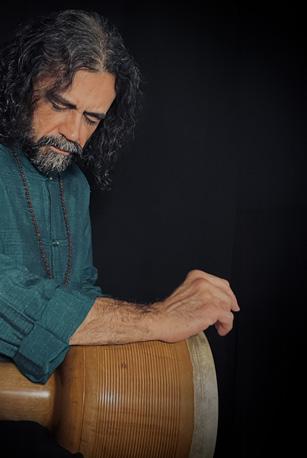
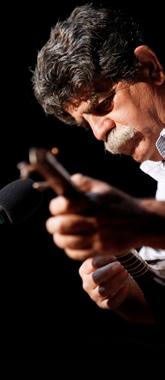
At the start of the academic year in September, the Mossavar-Rahmani Center celebrated Iranian composer Reza Vali with a performance of his work titled, “A Portrait Concert Celebrating Reza Vali.” Performed by artists of Decoda, the Affiliate Ensemble of Carnegie Hall, guests gathered in Chancellor Green Rotunda to hear a trio of three talented Decoda artists: Catherine Gregory on flute, Sæunn Thorsteinsdóttir on cello, and David Kaplan on piano. The chosen pieces honored Vali’s artistic identity and premiered a new version of Vali’s ‘Mystery of the Rose.’ The Princeton Institute for International and Regional Studies (PIIRS) and the Department of Music co-sponsored the event, which was followed by a reception where guests engaged with Vali and the musicians, enjoyed hors d’oeuvres, and received CDs and scores of the music they had heard.
By Rastak Music
The Center hosted a very special performance, “Tales of Earth and Sun,” in celebration of Nowruz this year, having hosted Rastak, one of the most well-known bands in Iranian contemporary folk music, in Richardson Auditorium in March 2025. Originally formed as an experimental music group in 1997, Rastak collects, records, and interprets Iranian folk music for a global audience, incorporating language, culture, and history with traditional instruments and contemporary rhythms, according to its website. The performance followed Rastak’s latest album release of the same name.
Like the Iranian winners of the Academy Awards this year — Shirin Sohani and Hossein Molayemi — confirmation of Rastak’s visa clearance was not secured until less than a week before the performance, slightly more time than Sohani and Molayemi’s arrival
for the Oscars the morning of, however, not much to carry out a grand show. Nonetheless, guests populated nearly 65 percent of the approximately 800-seat Richardson Auditorium, with groups coming from near and far. Maryam, a Princeton local, spread word to her Iranian community of Rastak’s upcoming premier performance in the United States. It was a lively and festive celebration, with attendees dancing in front of the rows of seats, just below the stage where the musicians were also dancing.
Moved by the evening, and specifically the Center’s role in bringing together so many Persian families who hadn’t gone back home for many years, Maryam shared, “Everyone was hugging each other and offering best wishes for the new year. I want to especially thank the Mossavar-Rahmani Center and its co-sponsors for making it possible for guests from other countries to be part of such a beautiful event and for bringing Iranian art and culture to campus with Rastak’s performance.”
The Mossavar-Rahmani Center is extremely grateful for the collaboration with campus administrative partners, particularly with Richardson Auditorium staff, the Davis International Center (its outside counsel) and Global Financial Services. The evening left many with feelings of joy, connection, and renewal.
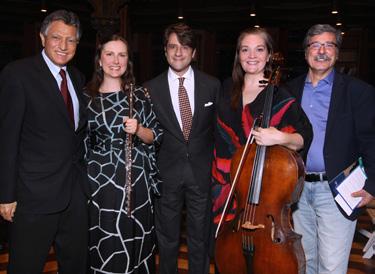

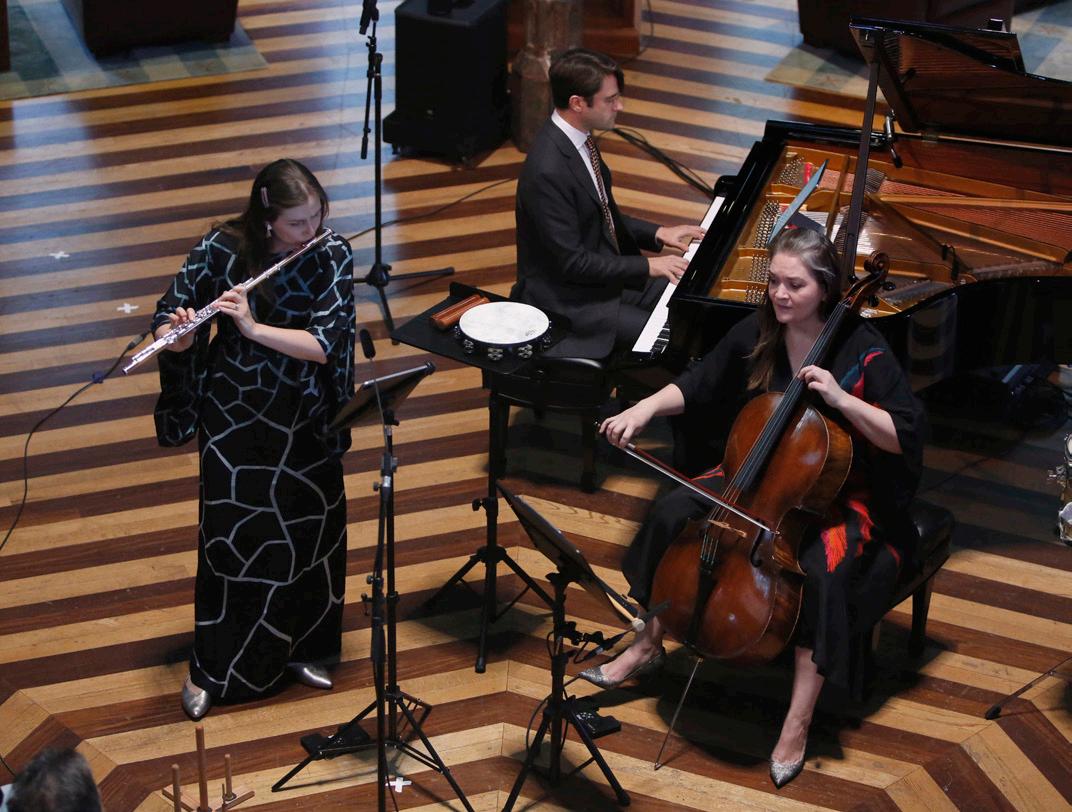


The Mossavar-Rahmani Center provides annual support to the Iranian Student Association, which actively engages with student members and hosts important celebrations throughout the year.
In 2024-25, Payman Kazemikhah, who served as ISA president, organized two significant celebratory events for Yalda and Nowruz (Persian New Year) respectively, in addition to coordinating smaller gatherings and encouraging participation in Center events.
support independent research, junior paper projects, or senior thesis research.
The following students received grants:
Noah Eshaghpour-Silberman 2026
Uriel Lin 2028
Brandon Maher 2026
Roya Reese 2026
Alec Silberg 2028
Sepehr Shojaie 2026
Graduate Funding
and Bijan Mossavar-Rahmani Center Dissertation Completion
In support of emerging scholars of Iranian studies at Princeton, the MossavarRahmani Center inaugurated a Dissertation Completion Fellowship beginning with the 2024-25 academic year. The award equals the University Fellowship, which provides recipients with a 10-month stipend, tuition, and student health fees. The Dissertation Completion Award encourages the awardee to engage regularly with Center faculty and researchers both informally and by attending the Center’s notable Wednesday seminar series, where intellectual exchanges and connections occur.
Fellowship recipients:
2025-26 XinyE Wei (Near Eastern Studies)
2024-25 Jamie O’Connell (Near Eastern Studies)
The Sharmin and Bijan Mossavar-Rahmani Center for Iran and Persian Gulf Studies provides summer grants to undergraduate students pursuing research and intensive language training primarily related to the scholarship of Iran and the Persian Gulf to
The Sharmin and Bijan Mossavar-Rahmani Center for Iran and Persian Gulf Studies provides summer grants to graduate students pursuing research and intensive language training primarily related to the scholarship of Iran and the Persian Gulf.
The following students received grants:
Adhip Amin
History
Runnie Exuma
Anthropology
Christa Hart
Near Eastern Studies
Ladan Heravi
Near Eastern Studies
Sibgha Javaid
Horizon Fellows Program
Navjit Kaur Anthropology
Mir Salar Razavi
Near Eastern Studies
Toha Toriq Religion
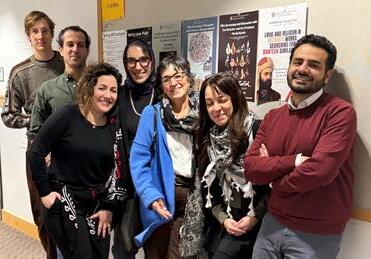


Sharmin
and Bijan
Mossavar-Rahamni Center Dissertation Completion Fellow

Jamie O’Connell
I am very grateful to have enjoyed the support of the inaugural Sharmin & Bijan Mossavar-Rahmani Center Dissertation Completion Fellowship during the 2024-2025 academic year. I had the pleasure of attending numerous events sponsored by the Center, including the weekly speaker series, which brought renowned scholars with expertise covering an incredibly vast range of Iranian history and culture to Princeton’s campus.
I spent this year researching and writing several chapters of my dissertation, entitled “Zoroastrian Identity and Authority Formation in the Persian Rivāyats.” This project examines a corpus of approximately 30 letters exchanged between the Zoroastrian communities of India and Iran from the late 1500s to late 1700s. While written primarily in New Persian, these letters include additional material in Avestan and Middle Persian. My work focuses on religious and civil authority structures as represented in these letters, which collectively comprise one of the most significant yet least studied sources for early modern Zoroastrianism. The dissertation includes editions and translations of 10 previously unpublished and/or unknown letters, two of which I discovered just before the last year.
Over the course of the fellowship, I have worked to complete three chapters devoted to a group of 18th-century Rivāyats concerned with a calendar controversy within the Indian Zoroastrian (or Parsi) community. This controversy ultimately resulted in a schism
among the Parsis that continues to this day. My project seeks to understand the origins and early history of this conflict within the larger religious and political framework of 18th-century Gujarat. As such, I have consulted letters and legal documents in Persian and Gujarati, English East India Company and Dutch East India Company factory records, letters from the archive of the Portuguese Estado da Índia, and local Persian histories from Iran and Gujarat.
I was fortunate to have the chance to present part of my research at the Association for Iranian Studies 14th Biennial Conference in August 2024, with a paper entitled “The Persian Rivāyat(s) of Jāmāsp Hakīm and the Origins of the Zoroastrian Calendar Controversy in 18th-century Gujarat.” The second chapter of my dissertation is an expanded version of this conference paper, which explores the very early days of the Parsi calendar conflict in 1720s Gujarat.
I will discuss portions of the research and writing that I completed this past year at two upcoming conferences. In September, I will present a paper entitled “Parsi Priests in the Sanskrit Cosmopolis: Nēryōsang Dhaval in the Later Parsi Tradition” at the 35th Deutscher Orientalistentag (DOT). This paper examines the early modern reception of a 12th century Parsi translator and priest who eventually came to be considered the archetype of Parsi Zoroastrian priestly knowledge. In November, I will present a paper entitled “When the Avesta Is Not Enough: Non-Zoroastrian Textual Evidence and the 18th-century Parsi Calendar Controversy” at Middle Eastern Studies Association 2025. This paper considers what led the priestly authors of several later Rivāyats to consult non-Zoroastrian texts in Arabic and Persian to defend their claims to calendrical authenticity.

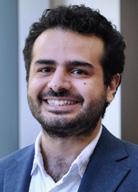
Q-mars Haeri
In my first year as an MRC fellow, my scholarly focus has been on my upcoming book about the social history of popular theatre in Iran. This year, through archival research on mid20th-century periodicals, I have uncovered significant pieces, including open letters that reflect evolving ideas of what constituted “good art” at the time and what fell outside of social norms in theatre. This research has directly contributed to filling gaps in my work, particularly regarding how popular theatre in Iran intersected with social, political, and cultural transformations during this period.
In addition to my book, I have been working on an article about the U.S. cultural presence in 1950s Iranian theatre. This project explores the effects of American cultural diplomacy, particularly the influence of theatre educators like George H. Quinby and Frank Davidson. Through archival research, including correspondence and reports from Quinby’s time in Iran, the article examines how American theatre pedagogy contributed to reshaping Tehran’s theatre district and the broader Iranian theatre landscape, particularly in the context of Cold War geopolitics. As part of my commitment to advancing the study and preservation of Iranian theatre, I co-curated an online symposium on Iranian alternative theatre under the Reconnect Festival, which featured 24 sessions, including roundtables, papers, video essays, and lecture-performances. This symposium critically examined the necessity, ethics, and methodologies of archiving unofficial performances in Iran, a movement of artists who forgo official licensing in favor of private, unlicensed venues. I presented a paper and organized a roundtable discussion with young performers on their experiences in the alternative theatre scene. The symposium also
emphasized how informal art spaces challenge and resist state-sanctioned narratives.
I have also been reflecting on teaching theatre of the Middle East and presented at a roundtable on teaching Middle Eastern theatre at the Association for Theatre in Higher Education (ATHE). I focused on my experience teaching a Theatre of the Middle East course at the American University of Kuwait. The course aimed to challenge the Westerncentric curriculum and engage students through performance. I shared insights into how students from various Middle Eastern backgrounds connected their experiences to the plays they studied, particularly in terms of censorship, political resistance, and collective action.
In addition to these scholarly pursuits, I am organizing panels for the upcoming ATHE Summer Conference as part of my role as conference organizer for the Middle Eastern Theatre Focus Group at ATHE. This involves curating and coordinating topics related to Middle Eastern theatre, and I look forward to the discussions this will generate within the theatre community.
Lastly, I am collaborating with the Lewis Center for the Arts to plan a production for Princeton’s theatre program in Fall 2025. This play, “A Moment of Silence” by Mohammad Yaghoubi, will likely be the first Iranian play performed as part of Princeton’s theatre season. During the rehearsal process, students will explore the impacts of the Iranian revolution through the lens of youth culture. This project marks an important step in bringing Iranian theatre to a broader international stage.

Sheragim Jenabzadeh
Over the past year, I published my article titled “The New Woman of Weimar Germany in the Imaginations of Young Iranian Intellectuals” in the peer-reviewed


journal European Review of History. This piece explores the parallel discourses on gender and modernity that emerged among Iranian and German intellectuals in the aftermath of World War I.
I also completed and submitted a new research article to the American Historical Review, titled “Selling the Third Reich to Iran: Modernity, Anti-Imperialism, and the Visual Grammar of a New Global Order.” This article investigates how Nazi propaganda appropriated Iranian discourses on antiimperialism and social reform during the Second World War. I presented this work at a roundtable at the 2023 German Studies Association conference in Montreal, where it was well received. Following this presentation, I was invited by the roundtable organizers to contribute a chapter to an edited volume, Global Nazism: The Third Reich in Transnational and International Perspective, forthcoming with Routledge.
In spring 2024, I submitted my chapter, which challenges traditional narratives that frame fascism in the Middle East through the lens of racial or Aryan affinities. Instead, it repositions Middle Eastern intellectual engagements with fascism as part of a broader spectrum of modern political ideologies, alongside liberalism and communism.
Furthermore, in support of my book manuscript, I traveled to German archives to trace the transnational networks of Iranian students involved in global revolutionary movements during the interwar period, with particular focus on those active in Berlin during the Weimar Republic. Student exchange became a key avenue for the global circulation of modern political thought and the formation of transnational anti-imperial movements. The process of migration and cross-cultural encounters exposed Iranian students to globally circulating discourses on anticolonialism, gender reform, the secularization of the state, and national self-determination, which became the hallmarks of the Pahlavi
dynasty’s state-building efforts during the interwar period and the decades that followed. In addition to my research activities, I coorganized the Spring 2025 seminar series at the Mossavar-Rahmani Center for Iran and Persian Gulf Studies. This series brought together established and emerging scholars at Princeton and fostered interdisciplinary dialogue on current scholarship in Iranian studies. I also served as an article reviewer for the journal Iranian Studies.

This is my first year as a Postdoctoral Research Associate at the MossavarRahmani Center for Iran and Persian Gulf Studies. In advancing my research projects, I have benefitted immensely from the support and collegial atmosphere provided by the Center, for which I am grateful.
In the past academic year, I have given a talk at the Center and presented ongoing projects at international conferences in Montreal; Washington, D.C.; and Amsterdam. In late 2024, my latest article, “Mobilized Resilience and Economic Development in Iran under Sanctions,” was published in Development and Change, a leading journal in the field of international development.
I have made significant progress on several projects. One project, of which the Development and Change article is part, examines how the Iranian government cushioned the economic impact of international sanctions. This segment recently received generous funding from the DataDriven Social Science Initiative at Princeton University for additional data collection and analysis. I would like to thank DDSS for their generosity and support.
Another project focuses on corporate elites and board interlocks in Iran. This involves tracing the shareholders and directors of the

largest corporations listed on the Tehran Stock Exchange over the past decade. So far, this project has produced an original and large dataset, the Iran Business Group Database. I presented an early paper based on preliminary analysis of this dataset at a workshop in April on “State Capitalism in the Middle East and North Africa,” organized by the University of Amsterdam.
In another collaborative initiative with colleagues at Princeton and Temple University, I received the good news that our panel was accepted for inclusion in the 2025 Annual Conference of the American Political Science Association (APSA), to be held in September in Vancouver, Canada. This project, which will likely result in a special issue or edited volume, seeks to provide fresh global perspectives on monarchical regimes and monarchical state formation.
Finally, I am collaborating with Corey Payne (University of Richmond) on a special issue on worker politics and warfare, accepted at the Global Labor Journal. We have widely publicized the call for papers and are currently awaiting submissions, due early May.
Looking ahead, I will soon start work on my book, which examines the making of the modern Iranian state through the lens of labor. A book proposal workshop organized by Center fellows in late April provided energy and excitement for the upcoming work.
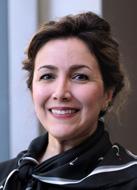
In the past year, I had the honor of working collaboratively with colleagues on several committees. In the summer and fall, I coorganized the MossavarRahmani Center’s spring seminar series. I also had the opportunity to serve on the Sharmin and Bijan MossavarRahmani Book Award selection committee, which exposed me to some of the best written
monographs and latest scholarly interventions in the field of Iranian Studies. In early spring, I invited award-winning Iranian filmmaker and photographer, Mariam Sepehri, to screen her documentary, “Alborz: We Climb Mountains,” which was followed by a discussion with the Princeton campus community. This event opened the door to the possibility of future collaborations, and facilitating access to countless Iranian documentaries that could benefit scholars of Iranian studies teaching on contemporary Iran in the U.S.
Since last summer, I have revised my dissertation’s theoretical contributions and restructured its chapters in preparation of the manuscript. Grounded in ethnographic data, the manuscript proposes that ezdevaj-e sefid (intimate partner cohabitation) in Iran provides an opportunity for observing social change as it relates to marriage, gender rights, and laws. It analyzes the ways in which everyday actors who steer social change have the power to trigger legal and political changes, and whether the consequences are ideal or intended. To do so, in one chapter, I investigate the distinctions between legally unsanctioned white marriage and legally sanctioned siqeh (temporary marriage), and question why Iranians increasingly opt for the former. I have a draft book proposal that I sent to a press at the end of the spring semester.
Last year, I attended the Law and Society Association (LSA) conference and presented a paper on a panel called, “Social Change, Revolution, and the Law.” Drawing on one of the chapters of my manuscript, it examined the rate at which social change occurs in spaces where access to political resources and legal recourse are limited. At this year’s LSA conference, I’ll be presenting content from another chapter about discursive opportunity structures and mobilizing the state through intimacy in Iran.


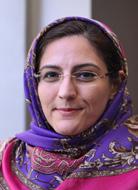
As my final year at the Center draws to a close, I am deeply grateful for the space and intellectual community it has provided in support of my work. This year has been especially formative, as I devoted much of my energy to transforming my initial research inquiry into a book manuscript, tentatively titled “Whose Guardian? Constitutionalism, Religion, and Judicial Power in Iran.”
The book, currently structured around six chapters and an epilogue, traces the institutional history of Iran’s Guardian Council and situates it within broader debates about the role of constitutional courts in authoritarian and hybrid systems. It examines how the Council has shaped—and at times distorted—Iran’s constitutional structure and ethos through its dual function as both an Islamic and constitutional review body. The manuscript argues that this unique institutional configuration has enabled a distinctive form of judicial power, revealing the structural vulnerabilities of hybrid constitutional systems.
In addition to the book project, I completed and published an entry on the 1906-07 Iranian Constitution for the Max Planck Encyclopedia of Comparative Constitutional Law (Oxford University Press). This piece offers historical context for the emergence of constitutionalism in Iran and an analysis of the constitutional structure it established. I also finalized a separate manuscript entitled “Constitutional Courts and the Challenge of Divided Societies: Mediating or Deepening the Religious–Secular Divide?” which is currently under peer review. The article draws on case studies from the region to explore how constitutional courts in deeply divided societies navigate tensions between religious and secular legal commitments.
Beyond writing, I had the honor of participating in the second annual “Women Judges in Conversation” symposium, which brought together women judges from constitutional courts and high councils across the MENA region—many of them the first women on their respective courts. The event fostered rich dialogue between judges and scholars on both the lived experience of judging and the academic study of constitutional law. I served as a commentator on the panel titled “The Role of Religious/ Customary Law and Its Relation to Gender Equality as a Constitutional Principle,” where I offered reflections on the intricacies of reconciling constitutional commitments to both religion and individual rights.
My interdisciplinary work as part of the Shia–Jewish Legal Reasoning Working Group also continued this year, in collaboration with other Shia and Jewish scholars. As we prepare chapters for an edited volume on theocratic legal theory and constitutionalism, our research has focused on tracing parallels in Shia and Jewish jurisprudence—particularly the role of mystical epistemologies in authorizing juristic lawmaking.
In service to the broader field, I reviewed submissions for the Oxford Journal of Islamic Studies. I also began designing my syllabus for a course on Comparative Constitutional Law, which I look forward to teaching during my upcoming appointment at the University of Iowa College of Law (inshallah!).
It has been a privilege to spend this final year at the Center. I leave with deep gratitude for the colleagues who have made this time so rewarding — personally and professionally. I am especially thankful to Femke and Alison for their unwavering support, and to Dr. Behrooz Ghamari-Tabrizi for envisioning and bringing to life such a nurturing and intellectually vibrant environment.


Sareh Z Afshar
My primary focus this year has been on completing my first manuscript, “Authority and Ambiguity: Performances of Death and Power in Postrevolutionary Iran.”
Using performance as an analytic to attend to artistic productions and ritual practices of and for the “war generation” (b. 1978-88), I theorize “performances of death” as hypervisual performances that materialize around death and its commemoration (or lack thereof) in postrevolutionary Iran. I contend that performances of death enable an interrogation of how commemorative practices shape the war generation’s sociopolitical agency and show how they help demystify the relationship between destiny, death, and procedures of power in the Iranian social imaginary, creating openings to alternative collective futures for the war generation. In October, I presented part of this research at the MRC seminar series, “Ambiguity in the Archive: Performances of Death and the Iranian War Generation.” I also shared another angle of this research with PU’s Behrman Undergraduate Society of Fellows in my March guest lecture, “The Performance of Mourning: What Does It Do? How Does It Do It?” Finally, at Princeton’s 2025 French Film Festival, I introduced the talented Iranian filmmaker, Sepideh Farsi, and moderated a discussion following the screening of her animated film on the Iran-Iraq War, “The Siren.”
I contributed an article to the upcoming special issue of Interventions: International Journal of Postcolonial Studies on “Memory, Feminism, Activism.” Titled “Necrogeographies: War, Mourning, and the Aesthetics of Allegory in Gohar Dashti’s Photographs,” the piece brings together two photographic series with field notes from Tehran to conceptualize what I call the “necropticon,” a disciplinary optoarchitectural system that operationalizes
images of the war’s martyrs and is key to the state’s historical involvement in the spread of performances of death. Elsewhere, I penned the catalogue essay “Counting to Forget: Memory at Work in Yasi Alipour’s Tessellating Holds and Folds” to accompany Dartmouth’s spring 2025 Artist-in-Residence, Yasi Alipour’s, solo exhibition entitled “Held Within: The Infinity of a Houseplant.” This is part of my ongoing collaboration with Alipour, with whom I held a talk in September at Penumbra Foundation entitled, “Dream as It Falls in the Eye, in Water, in Mirror.”
Lastly, I am currently revising two articles for publication. The first, “Translocal Affects: The Shareability of Feelings and Third Wave Iranian ‘Runaway Brains’,” is a forthcoming chapter in the peer-reviewed edited volume, I.B. Tauris Handbook of Iran and Iranians in the Modern World. In this essay, I return to my (digital) media studies roots to address minoritarian interventions to linguistic hegemony by contemplating how Iranian-ness is affectively performed online through Penglish and Enarsi. The second, to be submitted to Journal of Gender Studies, contests the uptake of the English term “morality police” in reporting on Iran long before the expression had a counterpart in Persian, and ponders how such linguistic imprecision and imposition performs to obstruct transnational feminist and queer solidarity and struggle. I presented on this and my ongoing work in a paper I gave at the National Women’s Studies Association conference in November, where I also co-convened a roundtable on “Decolonial Retrospeculation: Women of Color Feminist Temporalities and Imaginations.”
Looking ahead, next year I hope to bring several workshops to campus focusing on the Iranian artist community. I’m grateful for the opportunities for rich collaboration made possible by the generous support of the Center in sustaining a dynamic scholarly community.


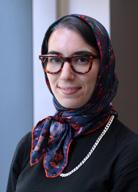
Beeta Baghoolizadeh
As my time as an Associate Research Scholar at the MossavarRahmani Center for Iran and Persian Gulf Studies comes to an end, I am reminded of how important an intellectual and collegial community is for driving our work forward. I thank Behrooz Ghamari-Tabrizi for his thoughtful leadership, Julia Elyachar for her openness and support as interim director this year, as well as Femke de Ruyter and Alison Cummins, for their continued commitment to the excellence of the Center on a day-to-day basis.
My last year as a fellow at Princeton has been overwhelmingly characterized as a transition period, where I’ve balanced my time between sharing my newly published book, “The Color Black: Enslavement and Erasure in Iran” (Duke University Press, 2024), and developing and writing my second book, which is currently in progress. I presented at several universities and other intellectual institutions across the United States that generously hosted me for book talks, including SFSU, Berkeley, University of British Columbia, Rutgers, Northwestern, UT Austin, and University of Pennsylvania, and served as a guest speaker in many classrooms and seminars where “The Color Black” has been assigned as essential reading. I also wrote and finalized several pieces that further my work on histories of enslavement and racism in the region, including a chapter on “Material Culture” for the edited volume Cultural History of the Middle East, and another article titled “The Afterlives of Slavery in Iran” for the Cambridge History of African Diaspora, as well as other pieces currently under review. At the Association for Iranian Studies conference in Mexico City last summer, I had the pleasure and honor of speaking on a roundtable about my book, alongside respondents Professors Naghmeh Sohrabi and Camron Amin, and also served as a panelist where I introduced my new research for
my second book. I will be continuing these conversations in the coming year, including at the Association for the Study of the Worldwide African Diaspora (ASWAD) Conference, where I will be presenting additional new material from my second book.
As I revisit the past three years at the Center, I am grateful for the time, space, and support I had at Princeton toward my research on race, gender, visuality, historiography, and the limits of memory. It has long been important for me that my work remain accessible beyond niche academic circles, and it is because of the Center and other nodes on campus — including the Open Access Research Fund and the Barr Ferree Publication Fund — that my research will be even more accessible in the years to come. Thanks to them, “The Color Black” will be open access beginning Spring 2026.
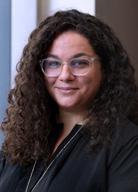
Negar Razavi I have made significant progress on my forthcoming book, which critically interrogates the politics of knowledge production on the Middle East broadly, and Iran specifically, within the U.S. foreign policy community. In addition to the book project, I was invited to speak about my research at various universities, including UC Berkeley’s Center for Middle East Studies (CMES). I was also invited to review two widely acclaimed monographs in the field: (a) Elastic Empire: Refashioning War through Aid in Palestine by Lisa Bhungalia for the Journal for the Anthropology of North America; and (b) How Sanctions Work: Iran and the Impact of Economic Warfare by Narges Bajoghli, Vali Nasr, Djavad Salehi-Isfahani, and Ali Vaez, which was published in Iranian Studies.
In addition to my scholarship, I became a Senior Research Fellow at Security in Context, a research initiative that aims to bring critical academic research to policy debates on global

security. I also served as one of the Iran coeditors of “Jadaliyya,” which similarly promotes critical public scholarship on the Middle East and North Africa.
I was the lead conference co-chair for the Association for Political and Legal Anthropology (APLA) and was recently nominated to run as a board member for APLA. Finally, at MRC, I served on the planning committee to organize the spring semester’s speaker series together with colleagues Sheragim Jenabzadeh, Maral Sahebjame, and Alison Cummins.

Sara Tafakori
During my time at the Mossavar-Rahmani Center, I worked toward the completion of my book manuscript, tentatively entitled: “Feeling Digital Feminism: Iranian women’s movements beyond nativism and empire.” The book explores the politics of feminist protest in Iran, particularly how struggles over bodily autonomy become entangled with broader questions of visibility, sovereignty, and collective subjectivity. The project traces how feminist demands are articulated through gestures and attachments that are often ambivalent, some fleeting, some enduring, many difficult to classify.
Drawing on a decade of digital and streetbased feminist campaigns, it brings feminist media studies, affect theory, and postcolonial critique into conversation to examine how feminist resistance remakes the field of the popular under conditions of repression and moral regulation.
My time at Princeton provided the conditions to complete full drafts of the manuscript’s four central chapters and begin shaping its introduction and conclusion. The Center offered a rare and necessary space to think
slowly, to return to unresolved questions, and to situate my concepts more deliberately within transnational debates on visibility, neoliberalism, and the politics of recognition.
During the fellowship, I also wrote and submitted an article, which is currently under review with a leading journal. The piece explores the affective and spatial logics of feminist protest in Iran and reflects some of the conceptual stakes that inform the larger project. The project attempts a recalibration of how the political work of visibility in feminist protest is understood. My concern is to stay with that ambivalence, especially in contexts where protest cannot be safely expressed in collectivist forms.
Conversations and exchanges during my time at Princeton helped me sharpen the argument and reframe it in light of wider disciplinary dialogues. In December, I was invited to present a paper at “The Afterlives of Feminist Revolutions” conference at McMaster University, Canada. The talk, part of a panel on platform feminism and resistance, offered a space to reflect on how digital feminist repertoires unsettle familiar divisions between individualized and collective protest. The conference, which brought together scholars and artists working across SWANA, Latin American, and transnational feminist contexts, offered a generative site for rethinking the affective and political grammar of protest.
Alongside writing and research, I participated in cross-disciplinary conversations at the University, which opened valuable paths into adjacent debates in political theory, media history, and postcolonial studies. These encounters helped me think more carefully about how the framing of both the article and the manuscript might allow the research to speak across multiple fields, while holding on to the specificity of its situated claims.
I am grateful to the Center’s director and staff for their care and commitment to creating a space where scholarship can take its time. I


leave with a manuscript near completion, and with a renewed attention to the ethical and conceptual demands of writing from within histories that remain unfinished.
The Sharmin and Bijan Mossavar-Rahmani Center for Iran and Persian Gulf Studies promotes interdisciplinary approaches to advancing understanding of Iran and the Persian Gulf, with special attention to the region’s role and significance in the contemporary world. The goal of the program is to support outstanding scholars of Iran and the wider Persianate world at an early stage of their careers and thus to strengthen the field of Iranian and Persian Gulf Studies in the United States and abroad.
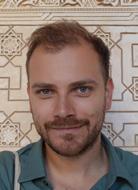
Erik Blackthorne-O’Barr
Erik Blackthorne-O’Barr
is an intellectual and cultural historian focused on the intersections of the Persianate and Ottoman worlds, with a particular interest in the connected histories of Qajar Iran and the late Ottoman Empire. His first book project, “Persian Letters: Language, Politics, and Desire in the Late Ottoman Empire,” traces how the literary and aesthetic debates surrounding the reform of the Ottoman Turkish language in the late 19th century were centered upon competing notions of Persianate influence, and the crucial role expatriate Iranians played in the articulation of Turkish literary modernity. By reading the intellectual, cultural, and material legacies of Iranian expatriates and exiles back into the history of 20th-century Turkish language reform, his work aims to place this linguistic event within a more transnational and global frame, and to highlight the contributions of a more diverse range of voices and backgrounds within the still strongly Eurocentric fields of the history and philosophy of language.
Blackthorne-O’Barr’s work has been published in the Journal of the Ottoman and Turkish Studies Association, Kadim, and Culture, Theory & Critique; as well as in the edited volumes Spectacle, Entertainment, and Recreation in the Modernizing Ottoman Empire and Republican Turkey (2023) and Performing Resilience: Intersectionality and Agonistic Solidarity for Another Turkey (forthcoming, 2026). His first co-edited volume, “Levantines of the Ottoman World: Communities, Identities, and Cultures,” was published by Ibn Haldun University Press in 2024. Prior to joining Princeton, Erik completed his Ph.D. in Middle Eastern, South Asian, and African Studies at Columbia University. His research has been supported by the Social Science and Humanities Research Council of Canada and the Gerda Henkel Stiftung, and from 2022-2023 he was named a doctoral fellow at the Koç University ANAMED Institute in Istanbul.
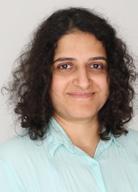
Saghar Bozorgi
Saghar Bozorgi is a historian of modern Iran who is interested in exploring the experience and perceptions of the non-elite and “ordinary” people, particularly their experience of madness and mental illness in mid-20th century Iran. Graduating with a Ph.D. from the history track of the Middle Eastern Studies department at the University of Texas at Austin, Saghar’s research is placed at the intersection of disability studies, history of emotions, and the social history of medicine. Saghar primarily relies on archival documents and oral history narratives for writing a dissertation that highlights the role of communities and neighborhoods in caring for the mentally ill and in challenging the common laws and practices of different state institutions with regard to mental illness. Saghar’s paper on “Medicalization of Anger between 1941-1951 in Iran” will be published as part of an edited volume on Disability History in the Middle East. Saghar is also a recipient of the Society

of Iranian American Women for Education (SIAWE) Scholarship in 2021 and 2025. Prior to Princeton and the University of Texas at Austin, Saghar studied sociology at Tehran University, Political Science at Central European University, and Middle Eastern Studies at the Kevorkian Center for Near Eastern Studies at New York University.

Aidin Torkameh
Aidin Torkameh earned his Ph.D. in Environmental Studies at York University. His research critically examines the production of Iran as a national state space since the 19th century, drawing
on Henri Lefebvre’s production of space, Antonio Gramsci’s spatial historicism, and Nicos Poulantzas’s state theory. He earned an initial Ph.D. in political geography from Tarbiat Modares University in Tehran and a degree in urban planning, expanding his interdisciplinary expertise to human geography, urban studies, and political theory. Aidin’s work explores planetary urbanization, environmental justice, and the spatial dimensions of nationalism and racism, particularly in Iran and Southwest Asia. Aidin has taught courses on urbanization, planning, and political geography at York University and the University of Toronto. He has also translated key works by Henri Lefebvre and other spatial theorists, making critical spatial and urban theory more accessible to Persian-speaking audiences.



Julia Elyachar
Interim Director, Sharmin and Bijan MossavarRahmani Center for Iran and Persian Gulf Studies; Associate Professor, Anthropology, Princeton Institute for International and Regional Studies
Behrooz Ghamari-Tabrizi (On sabbatical)
Director, Sharmin and Bijan Mossavar-Rahmani Center for Iran and Persian Gulf Studies; Professor, Near Eastern Studies
Femke de Ruyter
Center Manager, Sharmin and Bijan MossavarRahmani Center for Iran and Persian Gulf Studies
Alison Cummins
Office & Events Coordinator, Sharmin and Bijan Mossavar-Rahmani Center for Iran and Persian Gulf Studies
Center Research Associates
Sareh Z Afshar
Associate Research Scholar, Sharmin and Bijan Mossavar-Rahmani Center for Iran and Persian Gulf Studies
Beeta Baghoolizadeh
Associate Research Scholar, Sharmin and Bijan Mossavar-Rahmani Center for Iran and Persian Gulf Studies
Q-Mars Haeri
Postdoctoral Research Associate, Sharmin and Bijan Mossavar-Rahmani Center for Iran and Persian Gulf Studies
Sheragim Jenabzadeh
Postdoctoral Research Associate, Sharmin and Bijan Mossavar-Rahmani Center for Iran and Persian Gulf Studies
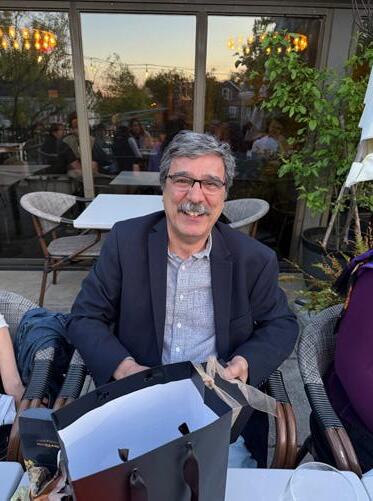
Zep Kalb
Postdoctoral Research Associate, Sharmin and Bijan Mossavar-Rahmani Center for Iran and Persian Gulf Studies
Negar Razavi
Associate Research Scholar, Sharmin and Bijan
Mossavar-Rahmani Center for Iran and Persian Gulf Studies
Maral Sahebjame
Postdoctoral Research Associate, Sharmin and Bijan Mossavar-Rahmani Center for Iran and Persian Gulf Studies
Marzieh Tofighi-Darian
Postdoctoral Research Associate, Sharmin and Bijan Mossavar-Rahmani Center for Iran and Persian Gulf Studies
Visiting Fellow
Sara Tafakori
Assistant Professor, University of Leeds, UK
MossavarRahmani Center DIrector, Behrooz Ghamari-Tabrizi at the annual end-of-year dinner

Executive Committee
Julia Elyachar
Interim Director, Sharmin and Bijan MossavarRahmani Center for Iran and Persian Gulf Studies; Associate Professor, Anthropology, Princeton Institute for International and Regional Studies
Dimitri H. Gondicas (Sits with Committee)
Senior Professional Specialist, The Council of the Humanities; Director, Stanley J. Seeger ’52 Center for Hellenic Studies; Acting Director, Program in Hellenic Studies
Beatrice Kitzinger
Associate Professor, Art and Archeology
Michael Francis Laffan
Paula Chow Professor In International and Regional Studies; Professor, History; Director, Fung Global Fellows Program
David S. Magier (Sits with Committee)
Associate University Librarian for Collections and Access Services
Christopher Chyba
Dwight D. Eisenhower Professor in International Affairs; Professor, Astrophysical Sciences
Michael Cook
Class of 1943 University Professor, Near Eastern Studies; Interim Director, Sharmin and Bijan Mossavar-Rahmani Center for Iran and Persian Gulf Studies (2018-2019)
Julia Elyachar
Interim Director, Sharmin and Bijan MossavarRahmani Center for Iran and Persian Gulf Studies; Associate Professor, Anthropology, Princeton Institute for International and Regional Studies
Michael Flower
David Magie ’97 Class of 1897 Professor of Classics
Molly Greene Professor, History and Hellenic Studies
Stephen Kotkin
Incoming Mossavar-
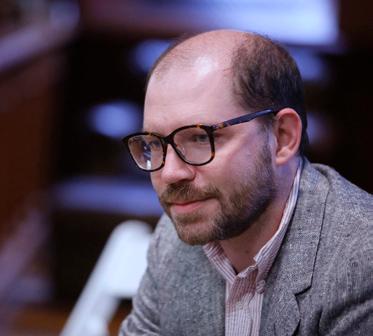
Daniel Sheffield (On sabbatical)
Associate Professor, Near Eastern Studies
Affiliated Faculty
Divya Cherian
Associate Professor, History
John P. Birkelund ’52 Professor, History and International Affairs, Emeritus
Michael Francis Laffan
Paula Chow Professor in International and Regional Studies; Professor, History; Director, Fung Global Fellows Program
Michael A. Reynolds
Associate Professor, Near Eastern Studies; CoDirector, Program in the History and Practice of Diplomacy
Daniel Sheffield (On sabbatical)
Associate Professor, Near Eastern Studies
Jack Tannous (On sabbatical)
Associate Professor, History and Hellenic Studies; Chair, Committee for the Study of Late Antiquity; Director, Program in Hellenic Studies


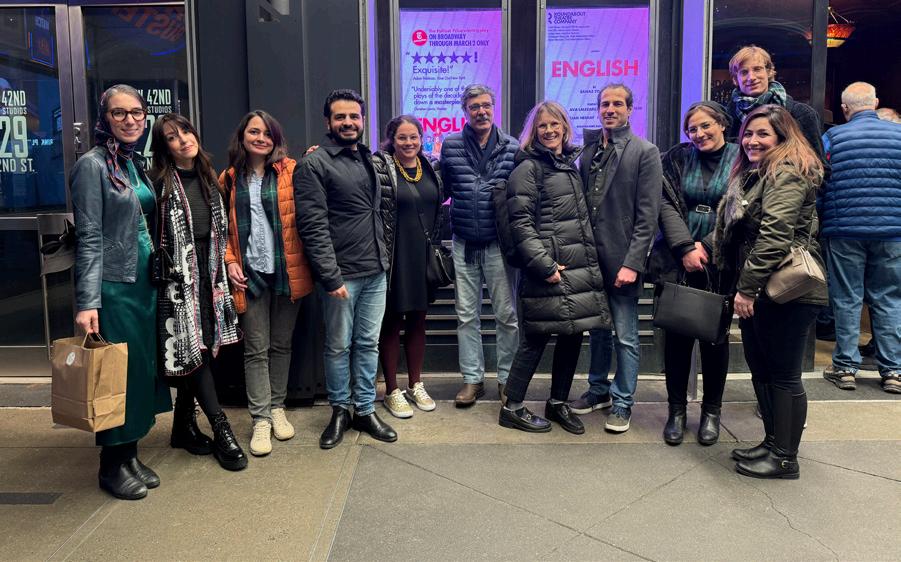
Moulie Vidas
Associate Professor, Religion and the Program in Judaic Studies
Max Weiss
Professor, History
Muhammad Qasim Zaman
Robert H. Niehaus ’77 Professor of Near Eastern Studies and Religion
Advisory Council Members
Olga M. Davidson
Research Fellow, Institute for the Study of Muslim Societies and Civilizations, Boston University
Alexander M. Farman-Farmaian
Partner, Vice Chairman and Portfolio Manager, Edgewood Management, LLC.
Michael M. J. Fischer
Andrew W. Mellon Professor in the Humanities; Professor of Anthropology and Science and
Technology Studies, Emeritus, Massachusetts Institute of Technology
Amaney A. Jamal
Dean, Princeton School of Public and International Affairs; Edwards S. Sanford Professor of Politics
Charles Kurzman
Philip Stadter Distinguished Professor of Sociology, University of North Carolina-Chapel Hill
Bijan Mossavar-Rahmani
Executive Chairman, DNO ASA; Executive Chairman, RAK Petroleum plc; Chairman, Foxtrot International LDC
Sharmin Mossavar-Rahmani
Chief Investment Officer, Consumer and Wealth Management, Goldman Sachs
Elaine Sciolino
Author, Contributing Writer, and Former Paris Bureau Chief, The New York Times

Audience members dance with Rastak to celebrate Nowruz.
Middle left: MRC Advisory Council member, Elaine Sciolino, in conversation with Prof. Christy Wampole at Labyrinth Books on her new book, “Adventures in the Louvre: How to Fall in Love with the World’s Greatest Museum.”
Middle Right: MRC community members
Mahshid Razavi and Taraneh Khonsari at a Center event.
Bottom: A selfie with MRC’s Alison Cummins, Femke de Ruyter, and Rastak members at the Nassau Inn.


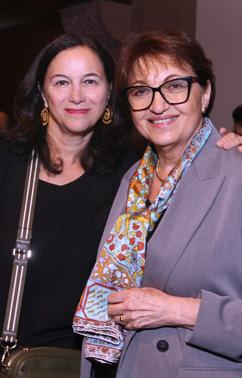




September 17, 2025
“What Should I Make for Lunch?” Belqeys Soleimani on Being Pre-Modern in PostRevolution Iran
Nasrin Rahimieh, University of California, Irvine
October 22, 2025
Crafting the Golden City: Later Theories of Kingship in the Persianate World
Ali Karjoo-Ravary, Columbia University
November 5, 2025
Culture Beyond Country: Strategies of Inclusion in the Global Iranian Diaspora
Amy Malek, William & Mary
November 13, 2025
Revolutionary Engineers: Learning, Politics, and Activism at Aryamehr University of Technology
Sepehr Vakil, Northwestern University and Mahdi Ganjavi, University of Toronto
December 3, 2025
Zainab’s Traffic: Moving Saints, Selves, and Others Across Borders
Emrah Yıldız, Northwestern University
Additional workshops and programming will be offered.
Please check our website for updated information: https://iran.princeton.edu
Sharmin and Bijan
Mossavar-Rahmani Center for Iran and Persian Gulf Studies
2-S-2 Green Hall Princeton, NJ 08544 USA